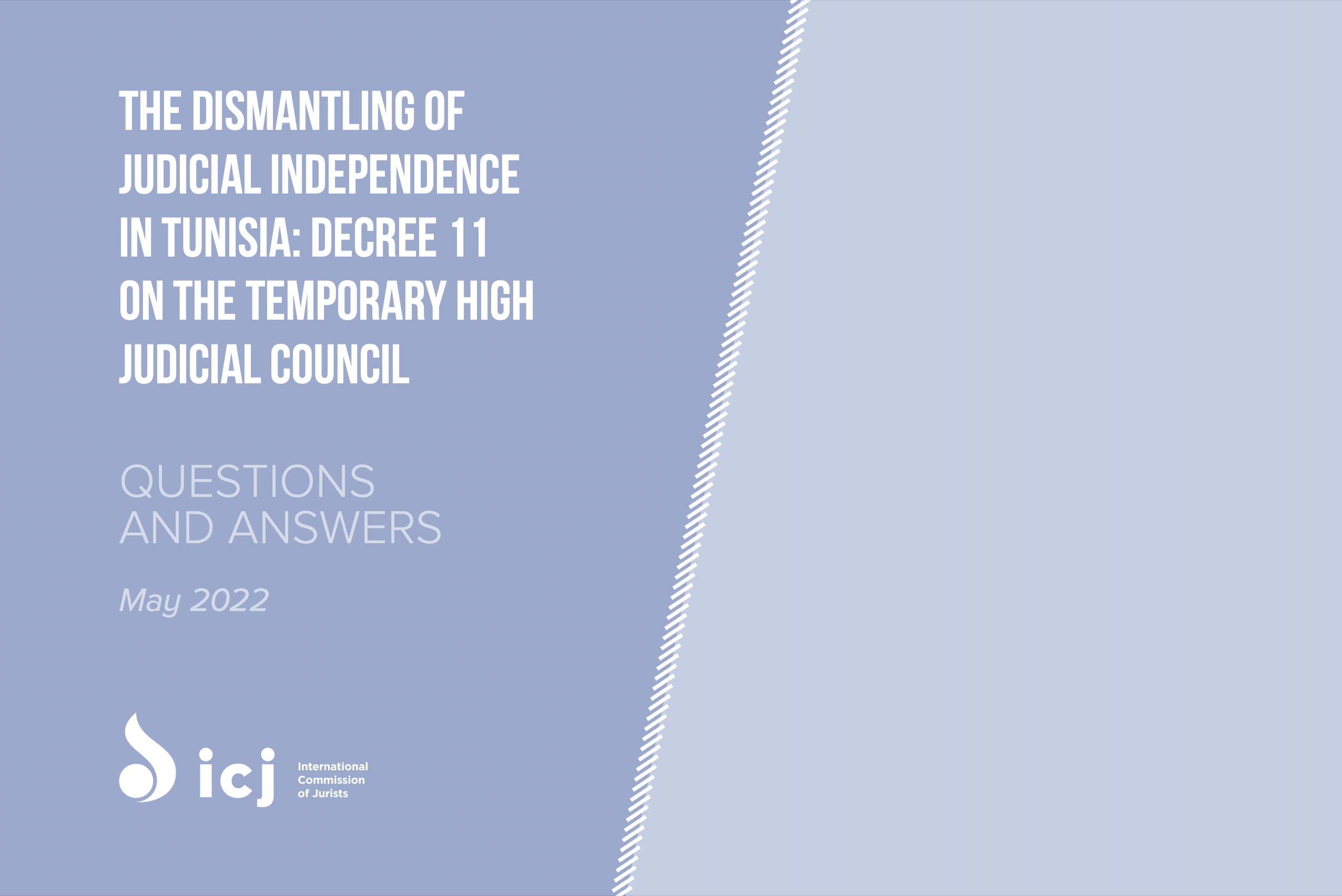A new Question-and-Answer (Q&A) briefing by the International Commission of Jurists (ICJ) examines Decree 2022-11 and its detrimental impact on the independence of the judiciary in Tunisia in light of international and human rights law and standards.
هذا البيان متوفر باللغة العربية أيضاً
Decree 2022-11, which was issued on 12 February 2022 by President Kais Saied, dissolved the Higher Judicial Council (HJC), replacing it with the Temporary High Judicial Council (THJC), and repealed Organic Law 2016-34 on the HJC. The decree enables the President to interfere with the career and discipline of judges.
On 7 March 2022, the members of the THJC were appointed and took the oath of office.
The ICJ’s Q&A briefing released today addresses the decree’s effect on the separation of powers and judicial independence in Tunisia by answering the following questions:
- What is the HJC and what is its mandate under the 2014 Constitution;
- Does the President of the Republic have the power to dissolve the HJC;
- How Decree 11 undermines the institutional independence of the judiciary;
- How Decree 11 undermines the individual independence of judges;
- How Decree 11 overhauls the disciplinary system for judges;
- How Decree 11 imposes arbitrary restrictions on judges’ human rights; and
- How to uphold judicial independence in Tunisia.
When truly independent and endowed with the necessary authority, High Judicial Councils can play a key role in reinforcing the separation of powers and safeguarding the institutional and individual independence of the judiciary from the interference of the executive or legislative branches of the State. The 2014 Constitution and Organic Law 2016-34 have already represented significant progress toward upholding the rule of law in Tunisia, by ensuring that the law regulating the HJC is consistent with the separation of powers and the independence of the judiciary.
The ICJ considers that the independence of the judiciary and the separation of powers may be restored in Tunisia only if the Tunisian authorities revoke Decree 2022-11 and reinstate the HJC while fully complying with Organic Law No. 2016-34, and when they fully reinstate the constitutional order. The Tunisian authorities have an obligation under international human rights law to ensure that the judiciary, as an institution, and judges as individuals, are able to act independently and impartially.
Background:
The High Judicial Council is a constitutional institution mandated to ensure the proper functioning of the judicial system and respect for its independence. Under Organic Law No. 2016-34 of 28 April 2016 on the High Judicial Council and the Tunisian 2014 Constitution, the mandate of the High Judicial Council include:
- Overseeing the organization of the judiciary and managing the career of both judges and prosecutors;
- Ruling on disciplinary cases, sitting as a disciplinary council for judges;
- Proposing reforms and providing opinions on draft legislation concerning the organization and administration of the judiciary;
- Preparing an annual public report and submitting it to the President of the Parliament, the President of the Republic and the Prime Minister; and
- Designating a third of the members of the Constitutional Court, along with the President and the Parliament.
You can read or download this Q&A in English, Arabic, or French.
Contact
Said Benarbia, Director, ICJ Middle East and North Africa Programme; t: +41 22 979 3817, e: said.benarbia(a)icj.org
Tamara Aburamadan, Legal Researcher, ICJ Middle East and North Africa Programme; t: +216 56 682 776, e: tamara.aburamadan(a)icj.org
Asser Khattab, Research and Communications Officer, ICJ Middle East and North Africa Programme; e: Asser.Khattab(a)icj.org

